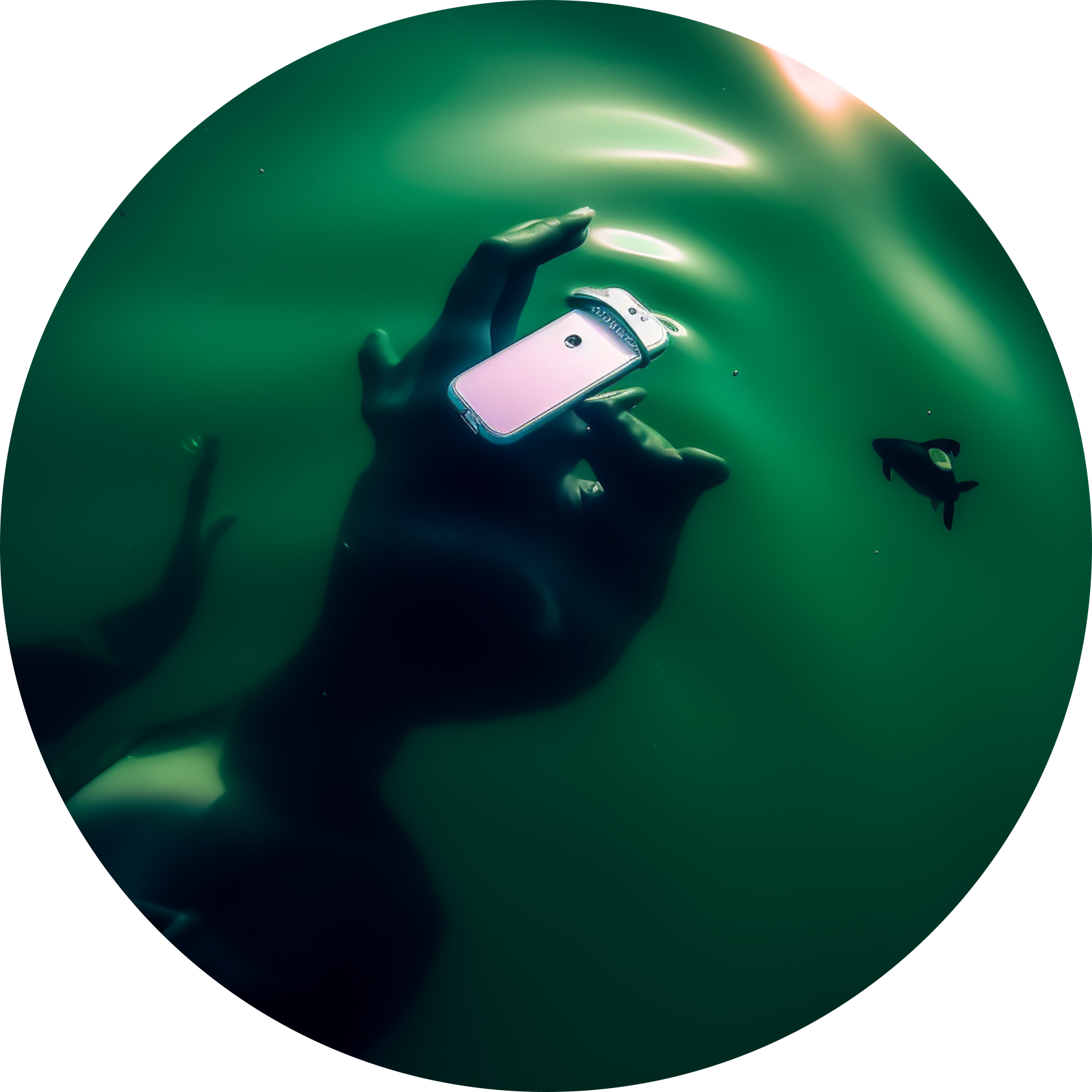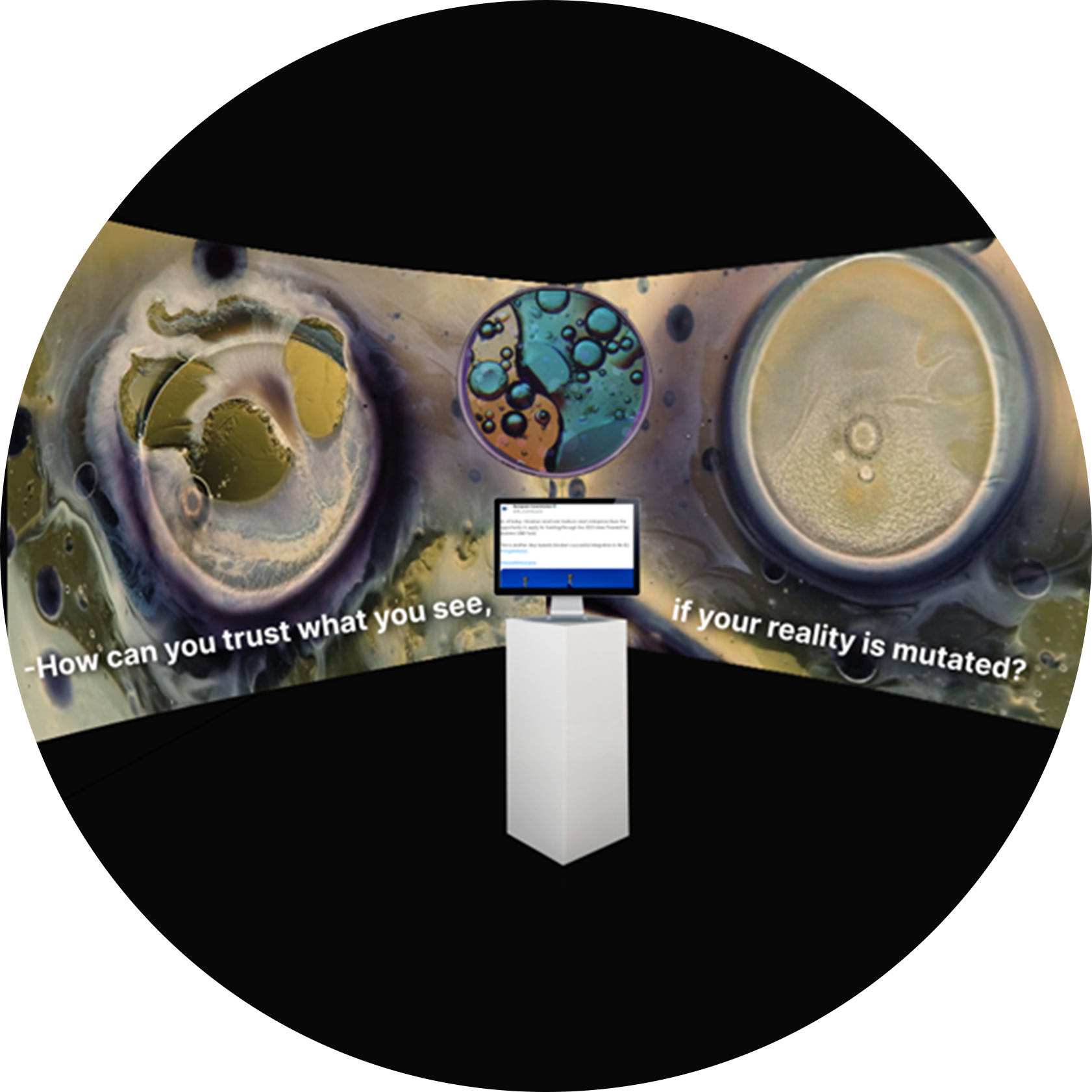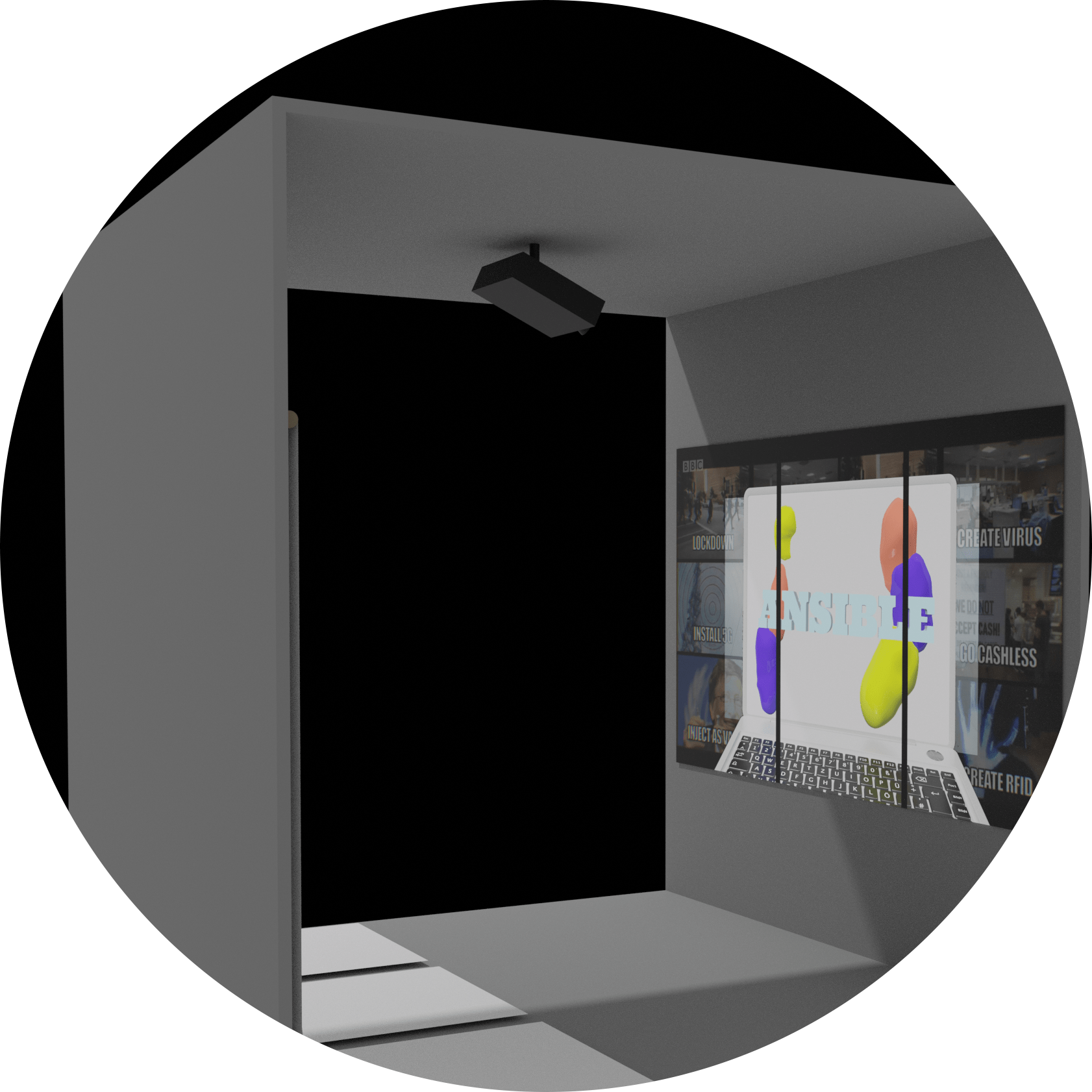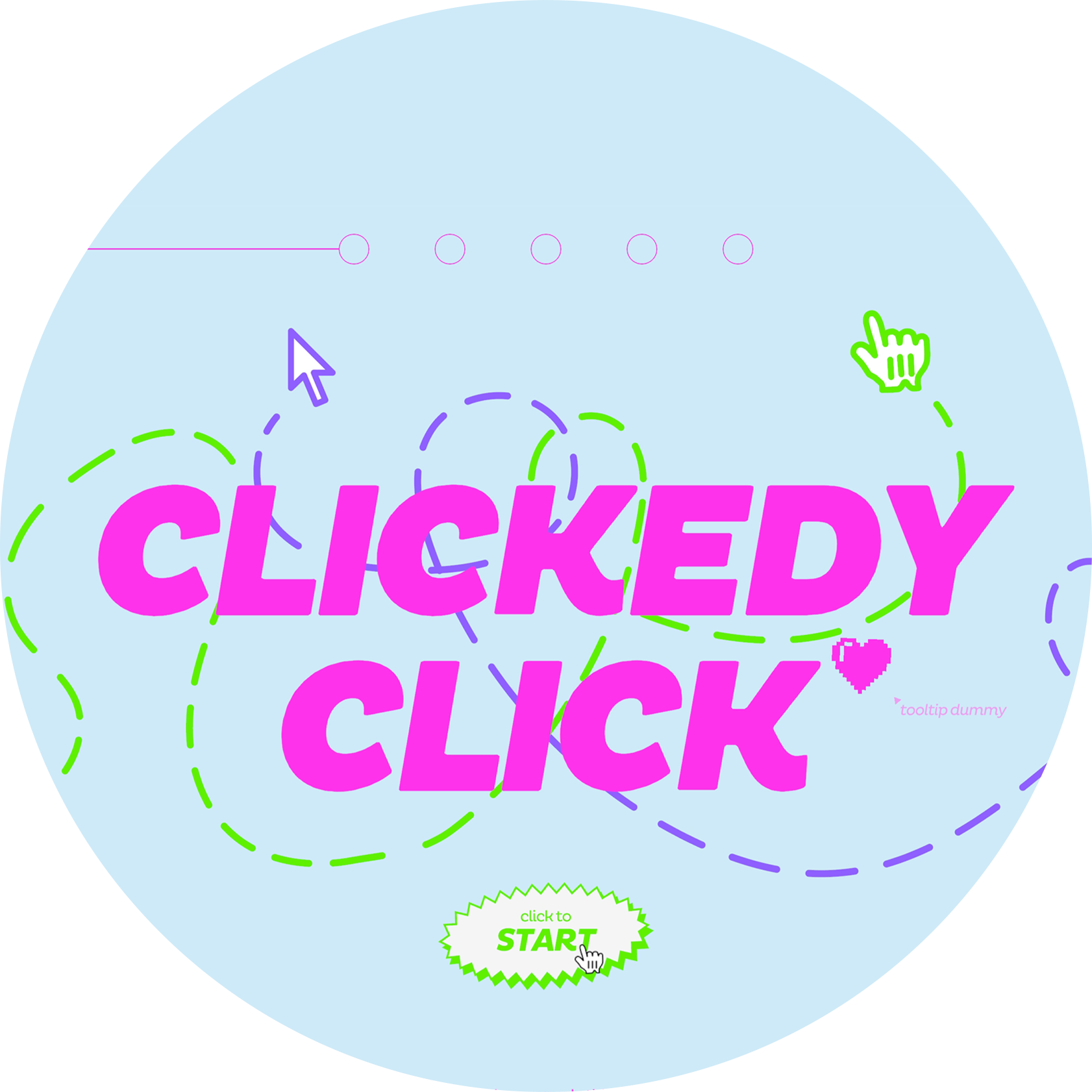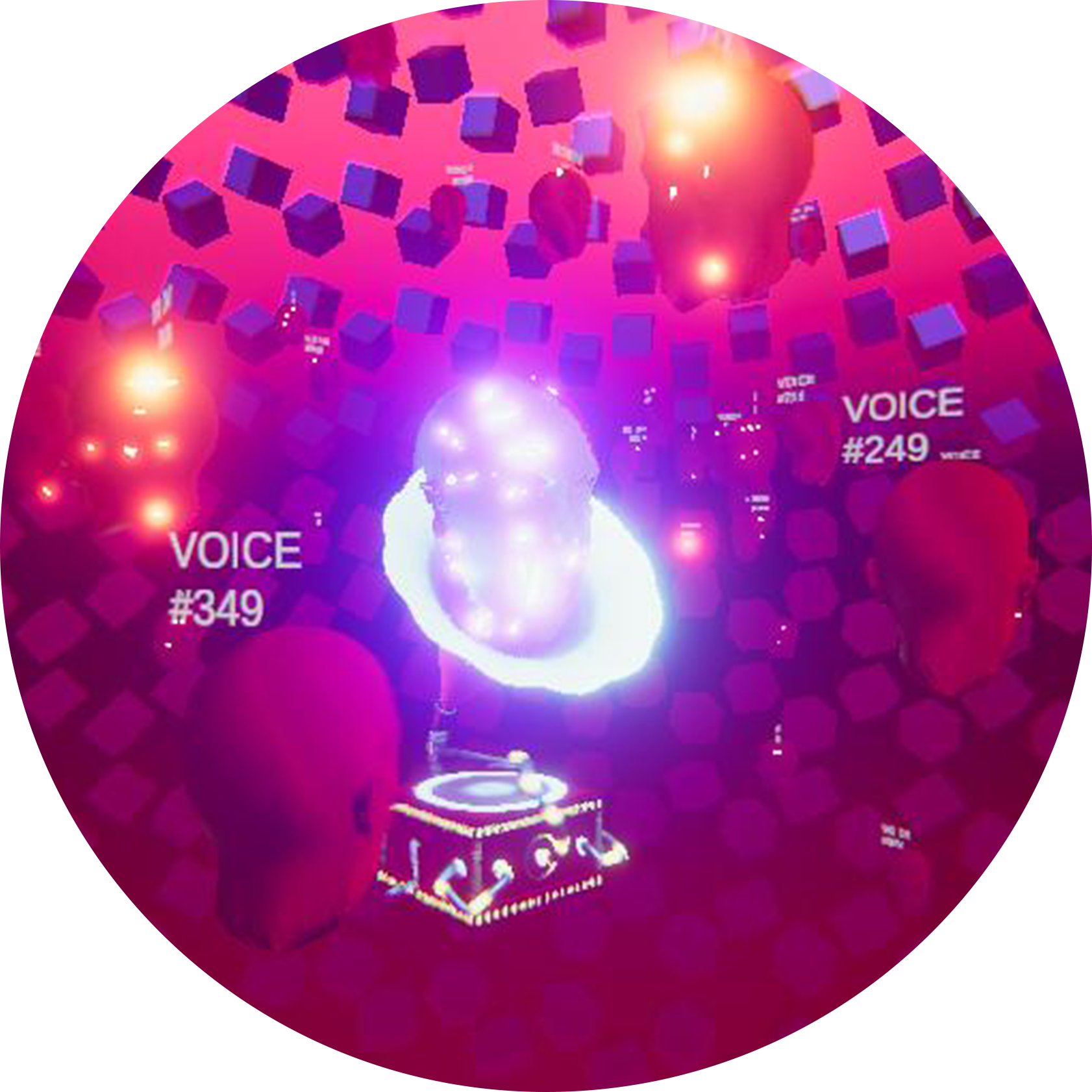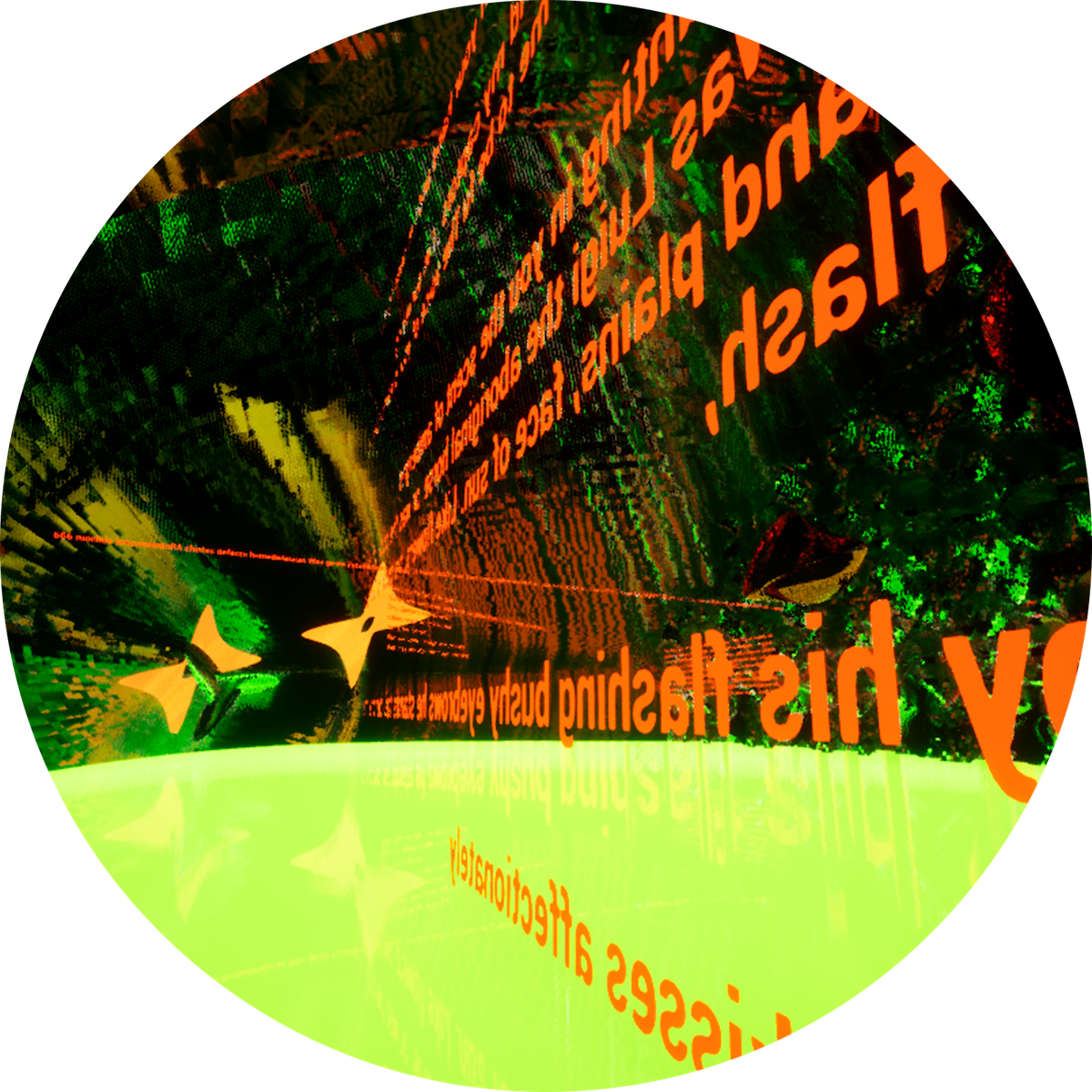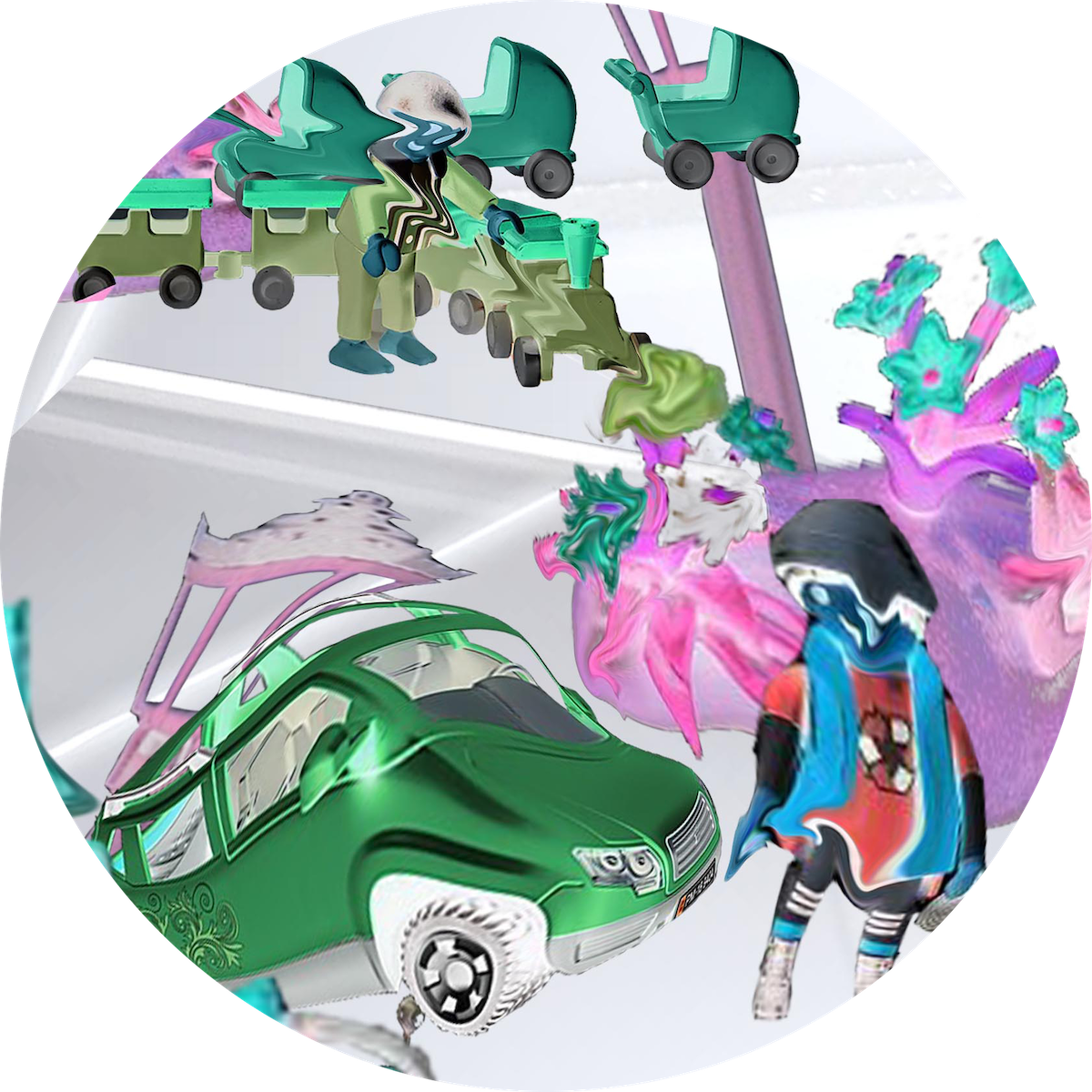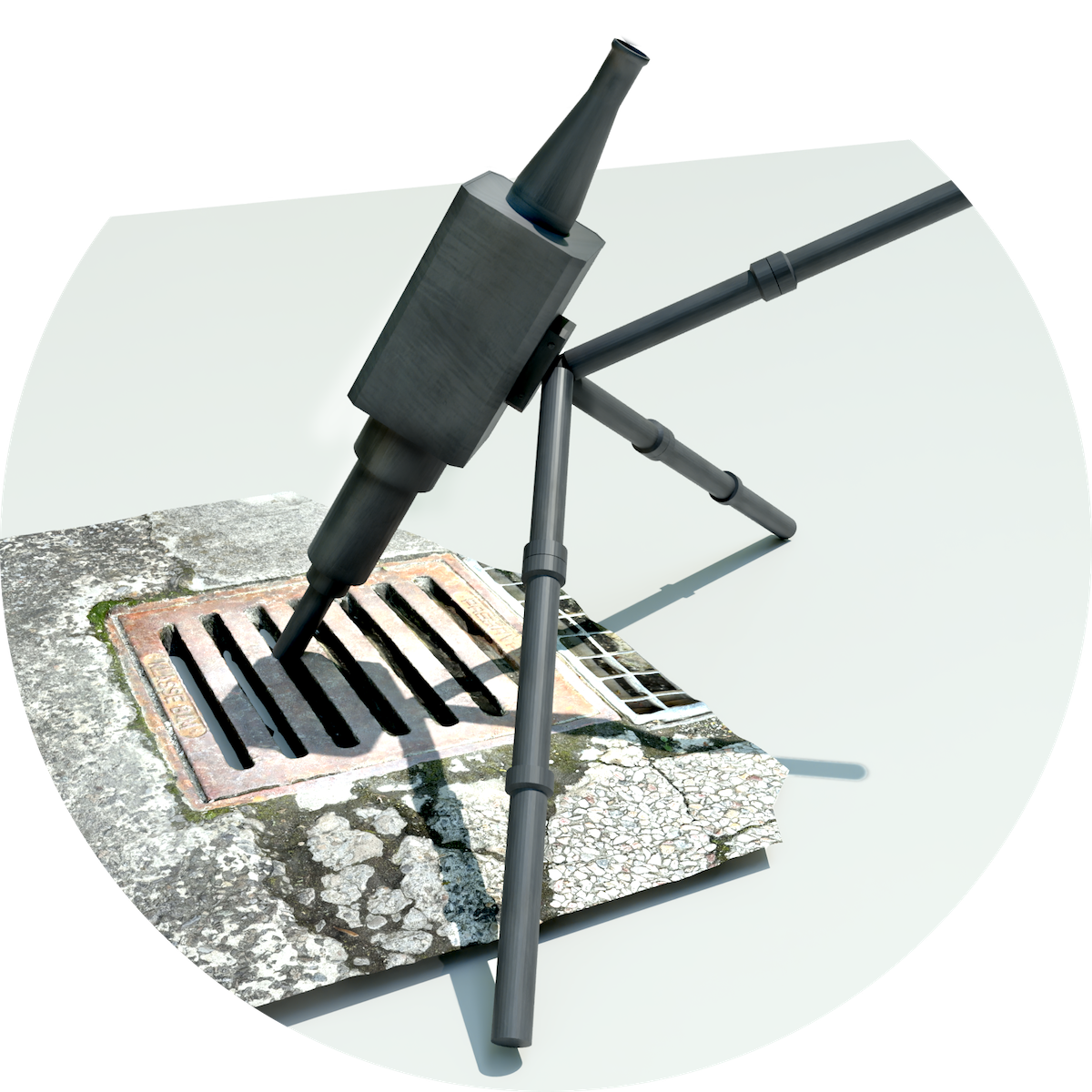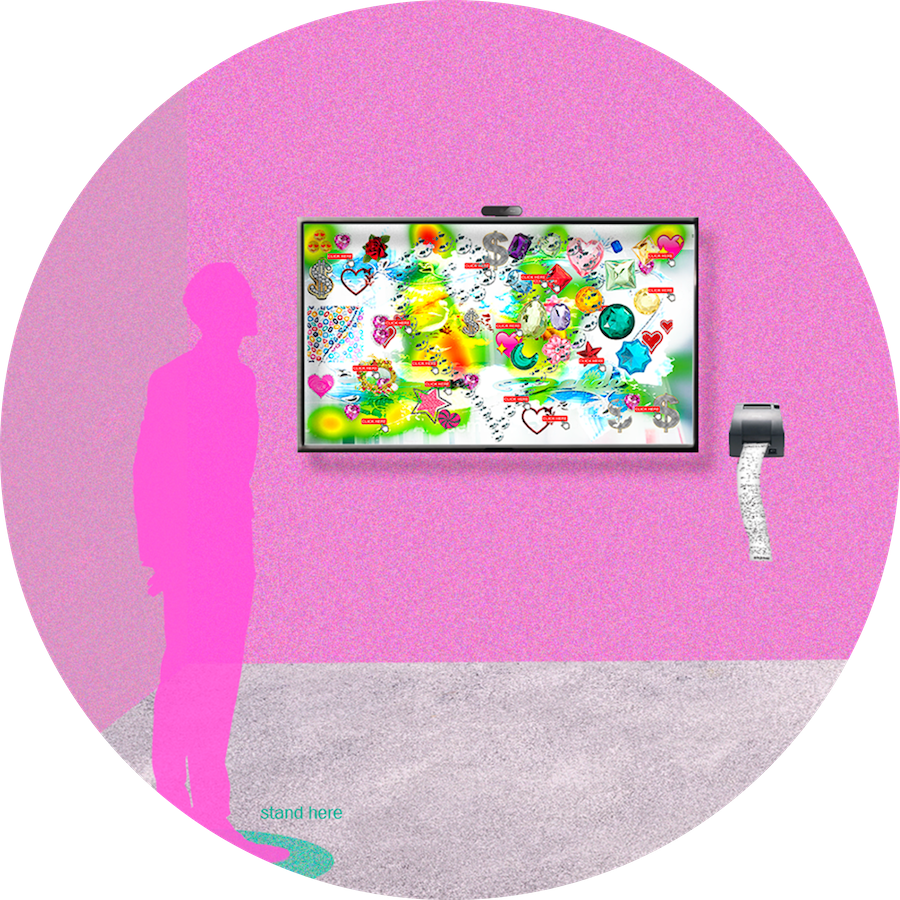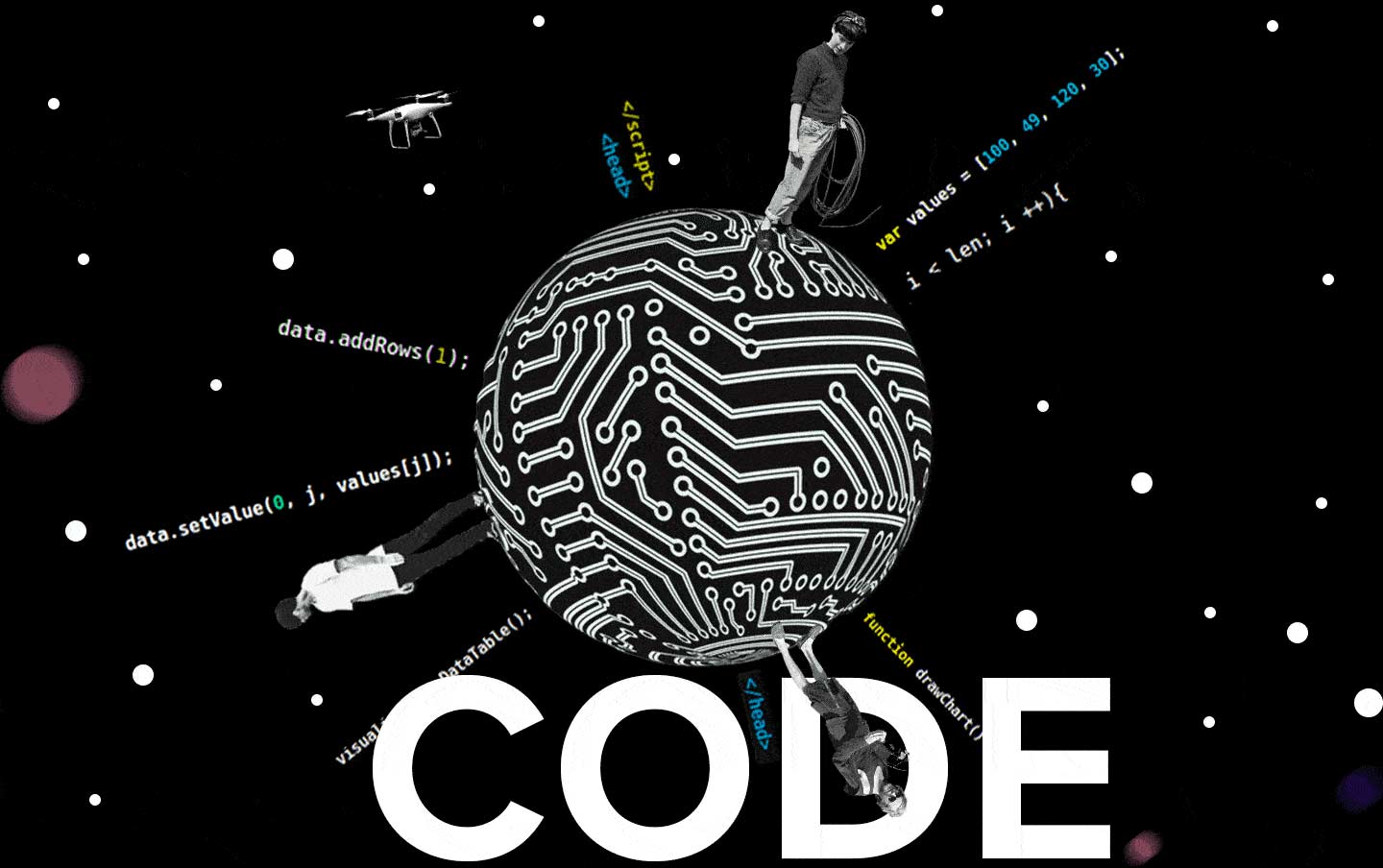CODE 2023
various artists, 2023
Production: IMPAKT (NL), School of Machines, Making & Make Believe (DE), Werktank (BE) and Privacy Salon/Privacytopia (BE)
With the support of Gemeente Utrecht Stimuleringsfonds, Fonds voor Cultuurparticipatie, Nederlandse Ambassade in België (Koninkrijk der Nederlanden) and Goethe Institut
Photo credits: Tasha Arlova
Each year, participants from from several European countries take part in a process of collaboration, discussion, and co-creation. Together they produced projects that address specific issues concerning our digital agency and the power of big tech.
Here are the projects realized in 2023:
ON THE EXACTITUDE OF MAPS
Digital maps representing the physical world are built and updated in real-time as people use their devices to navigate public space. Even while wandering aimlessly, users generate data trails which are captured and fed back into a cybernetic leviathan. On the Exactitude of Maps contrasts user reviews with excerpts from critical reflections to raise questions about the ownership of geospatial data in a global economy and what that implies for the generation of value in contemporary cities.
Team: Rebekka Jochem (BE) and Felipe Schmidt Fonseca (DE)
VOICES
VOICES aims to shed light on the opaque inner workings of common voice technologies, by reflecting how these technologies process, analyse and clone voices. This interactive audio-visual installation invites participants to record a secret. In return, they hear cloned voices telling the secrets of previous participants.
Team: Mohsen Hazrati (DE), Phivos-Angelos Kollias (DE), Yu Zhang (NL), Ahnjili ZhuParris (NL)
CLICKEDY.CLICK
Tracking for Love
The design of online interfaces influences the way users form identities and perspectives on the world. Clickedy.click is a provocative social experiment that addresses the current issue of online platforms implementing untransparent, non-consensual user tracking to inform the design of their interfaces. Using the format of a dating platform, clickedy.click integrates this type of user tracking in its core matchmaking system. In this scenario, users come to question just how much can be concluded from their data.
Team: Hennie Bulstra (NL), Robin van de Griend (NL), Leon van Oldenborgh (NL), Lukas Völp (NL)
ANSIBLE
Ansible departs from the global roll-out of the 5G infrastructure to explore the disconnect between the speed of telecommunications and the human act of communication. The work unfolds in the form of a conversation between the fictional characters meeting for the first time on an internet video chatroom, each from their own corners of the world. The work explores these themes not only within the finished piece itself, but also in the documentation of the creation process: over the course of several months, the artists left improvised scripted voice messages on each other’s phones, each in their own native language.
Team: Yedam Ann (DE), Alexander Walmsley (DE), Sixin Zeng (NL)
BUG
BUG investigates how we look at insects and asks: Who or what determines our perception of an animal? Biosurveillance has become more popular over the past decade and now bug fights have become a source of entertainment. Look into the BUG telescope and you become a voyeur of a vibrant ecosystem living in networks of channels. While you surveil, wait to be entertained and discover new truths about this underground universe, BUG looks back at you.
Team: Antje Jacobs (Amarante Swift) (BE), Denisa Pubalova (NL), Lea Luka Sikau (DE)
PAY WITH YOUR GAZE
The natural movement of our eyes is being marketed as a ‘next generation’, intuitive interface. This simple human gesture has become yet another resource to be exploited by surveillance capitalism. How much is our gaze at a screen worth? Pay with Your Gaze raises awareness on the misuse of eye tracking technologies and the true value of our online attention.
Team: Vinciane Dahéron (BE), Marion Lissarrague (BE), Ana Spagnolo López (BE), Helena Roig (NL)
CYBI0NT
Decoding the Mutations of Truth
Cybi0nt is an interactive installation that seeks to explore the alarming acceleration and impact of deepfake news on contemporary society. The project uses the symbolism of gene mutation to represent the morphing and distortion of truth, as simulated through an automated cyberdeck-like machine.
The machine generates deepfake news targeting European Union policymakers and institutions, thus demonstrating the destabilizing potential of such tactics in real-world scenarios. Each piece of fabricated news is then represented as a gene mutation inside a large, wall-mounted Petri dish, which serves as a visual metaphor for the rampant spread of misinformation. In the face of an infodemic, Cybi0nt offers a potent critique of the current information landscape. The mutating gene in the Petri dish symbolizes how each piece of disinformation disrupts our understanding of reality, much like a genetic mutation can alter an organism’s function. In addition to a video installation, visitors are invited to interact with the cyber news machine, triggering the generation of new deepfakes and subsequently observing the mutation unfold. This interactive element provokes individual reflection on our role in the propagation of fake news, our susceptibility to it, and our responsibility in combating it.
Cybi0nt is not only an art project but a societal commentary and a call to action. By witnessing the disturbing metamorphosis of truth, we hope to inspire critical thinking and responsible information consumption in our digital age.
Team: Aslı Dinç (DE), Deniz Kurt (NL)
MY VIRTUAL MERMAID
Natural Field Recordings
If the digital world is a sea of information, malicious software and computer viruses are sirens – apparently charming water creatures that are actually terrible monsters that sing sweet, magical songs to lure their victims. This project stands at the crossroads of psychoacoustics, political critique and sound healing. It uses sampling, distortion, and mixing techniques to pose critical questions about our relation to the signals, notifications and alarms that aurally demarcate our digital world.
Team: Lisa Bador (DE)
APEIRON
APEIRON is an application that analyses the ways we work with information. Using this independent and transparent, self-regulating application powered by AI technologies, users can regain control of their digital identities and reduce the influence corporations have over our data. This approach offers users alternative ways to manage and protect their information. The users are represented by biological cells; their data flows like viruses.
Team: Robert B. Lisek (DE), Oleksandr Sirous (DE)
Elk jaar nemen deelnemers uit verschillende Europese landen deel aan een proces van samenwerking, discussie en co-creatie. Samen creëren ze projecten die specifieke kwesties rond onze digitale autonomie en de macht van big tech aanpakken.
Hier zijn de projecten die in 2023 zijn gerealiseerd:
ON THE EXACTITUDE OF MAPS
Digitale kaarten die de fysieke wereld vertegenwoordigen, worden in real-time gebouwd en bijgewerkt terwijl mensen hun apparaten gebruiken om door de openbare ruimte te navigeren. Zelfs wanneer ze doelloos ronddwalen, genereren gebruikers datastromen die worden vastgelegd en teruggevoerd in een cybernetisch monster. On the Exactitude of Maps contrasteert gebruikersrecensies met fragmenten van kritische reflecties om vragen op te werpen over het eigendom van geografische gegevens in een wereldeconomie en wat dat betekent voor de waardecreatie in hedendaagse steden.
Team: Rebekka Jochem (BE) en Felipe Schmidt Fonseca (DE)
VOICES
VOICES heeft als doel om inzicht te geven in de ondoorzichtige werking van veelgebruikte stemtechnologieën, door te laten zien hoe deze technologieën stemmen verwerken, analyseren en klonen. Deze interactieve audiovisuele installatie nodigt deelnemers uit om een geheim op te nemen. In ruil daarvoor horen ze gekloonde stemmen die de geheimen van eerdere deelnemers vertellen.
Team: Mohsen Hazrati (DE), Phivos-Angelos Kollias (DE), Yu Zhang (NL), Ahnjili ZhuParris (NL)
CLICKEDY.CLICK
Tracking for Love
Het ontwerp van online interfaces beïnvloedt de manier waarop gebruikers identiteiten vormen en perspectieven op de wereld ontwikkelen. Clickedy.click is een provocerend sociaal experiment dat het huidige probleem van online platforms aankaart, waarbij ondoorzichtige, niet-consensuele gebruikerstracking wordt gebruikt om het ontwerp van hun interfaces te verbeteren. Met behulp van een datingsiteformat integreert clickedy.click dit soort gebruikerstracking in het kernmatchmakingsysteem. In dit scenario gaan gebruikers zich afvragen hoeveel er eigenlijk uit hun data kan worden afgeleid.
Team: Hennie Bulstra (NL), Robin van de Griend (NL), Leon van Oldenborgh (NL), Lukas Völp (NL)
ANSIBLE
Ansible vertrekt vanuit de wereldwijde uitrol van de 5G-infrastructuur om de kloof te verkennen tussen de snelheid van telecommunicatie en de menselijke communicatie. Het werk ontvouwt zich in de vorm van een gesprek tussen fictieve personages die elkaar voor het eerst ontmoeten in een internetvideochatroom, elk vanuit hun eigen deel van de wereld. De thema’s worden niet alleen binnen het voltooide werk zelf verkend, maar ook in de documentatie van het creatieproces: gedurende enkele maanden lieten de kunstenaars geïmproviseerde gescripte spraakberichten achter op elkaars telefoons, elk in hun eigen moedertaal.
Team: Yedam Ann (DE), Alexander Walmsley (DE), Sixin Zeng (NL)
BUG
BUG onderzoekt hoe we naar insecten kijken en stelt de vraag: Wie of wat bepaalt onze perceptie van een dier? Biosurveillance is de afgelopen tien jaar steeds populairder geworden en nu zijn insectengevechten een bron van vermaak geworden. Kijk door de BUG telescoop en je wordt een voyeur van een levendig ecosysteem dat leeft in netwerken van kanalen. Terwijl je observeert en wacht om vermaakt te worden, ontdek je nieuwe waarheden over dit ondergrondse universum, terwijl BUG terugkijkt naar jou.
Team: Antje Jacobs (Amarante Swift) (BE), Denisa Pubalova (NL), Lea Luka Sikau (DE)
PAY WITH YOUR GAZE
De natuurlijke beweging van onze ogen wordt vermarkt als een ‘next generation’, intuïtieve interface. Dit simpele menselijke gebaar is weer een nieuwe bron geworden om te worden geëxploiteerd door surveillancekapitalisme. Hoeveel is onze blik naar een scherm waard? Pay with Your Gaze verhoogt het bewustzijn over het misbruik van oogtrackingtechnologieën en de echte waarde van onze online aandacht.
Team: Vinciane Dahéron (BE), Marion Lissarrague (BE), Ana Spagnolo López (BE), Helena Roig (NL)
CYBI0NT
Decoding the Mutations of Truth
Cybiont is een interactieve installatie die de verontrustende versnelling en impact van deepfake nieuws op de hedendaagse samenleving onderzoekt. Het project gebruikt de symboliek van genmutatie om de vervorming van de waarheid te vertegenwoordigen, gesimuleerd door een geautomatiseerde cyberdeck-achtige machine.
De machine genereert deepfake nieuws dat zich richt op beleidsmakers en instellingen van de Europese Unie, en toont zo het destabiliserende potentieel van dergelijke tactieken in realistische scenario’s. Elk stuk gefabriceerd nieuws wordt vervolgens weergegeven als een genmutatie in een grote, aan de muur gemonteerde Petri-schaal, die dient als visuele metafoor voor de ongebreidelde verspreiding van desinformatie. In het licht van een infodemie biedt Cybi0nt een krachtige kritiek op het huidige informatielandschap. De muterende genen in de Petri-schaal symboliseren hoe elk stukje desinformatie ons begrip van de realiteit verstoort, net zoals een genetische mutatie de functie van een organisme kan veranderen. Naast een video-installatie worden bezoekers uitgenodigd om met de cybernieuwsmachine te interacteren, waardoor nieuwe deepfakes worden gegenereerd en ze de mutatie kunnen zien plaatsvinden. Dit interactieve element provoceert individuele reflectie op onze rol in de verspreiding van nepnieuws, onze vatbaarheid ervoor, en onze verantwoordelijkheid in het bestrijden ervan.
Cybiont is niet alleen een kunstproject, maar ook een maatschappelijke kritiek en een oproep tot actie. Door getuige te zijn van de verontrustende metamorfose van de waarheid, hopen we kritisch denken en verantwoordelijk informatiegebruik in ons digitale tijdperk te inspireren.
Team: Aslı Dinç (DE), Deniz Kurt (NL)
MY VIRTUAL MERMAID
Natural Field Recordings
Als de digitale wereld een zee van informatie is, dan zijn kwaadaardige software en computervirussen sirenen – schijnbaar charmante waterwezens die in werkelijkheid verschrikkelijke monsters zijn die zoete, magische liedjes zingen om hun slachtoffers te lokken. Dit project bevindt zich op het kruispunt van psycho-akoestiek, politieke kritiek en klankheling. Het maakt gebruik van sampling, vervorming en mixtechnieken om kritische vragen te stellen over onze relatie tot de signalen, meldingen en alarmen die onze digitale wereld auditief markeren.
Team: Lisa Bador (DE)
APEIRON
APEIRON is een applicatie die de manieren analyseert waarop we met informatie werken. Met deze onafhankelijke, transparante en zelfregulerende applicatie, aangedreven door AI-technologieën, kunnen gebruikers de controle over hun digitale identiteiten terugwinnen en de invloed van bedrijven op onze gegevens verminderen. Deze aanpak biedt gebruikers alternatieve manieren om hun informatie te beheren en te beschermen.
Gebruikers worden weergegeven door biologische cellen; hun gegevens stromen als virussen.
Team: Robert B. Lisek (DE), Oleksandr Sirous (DE)
